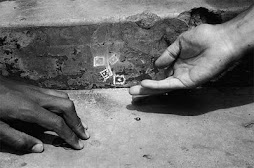 First off, who ever cast John Menga as Dill needs to have their brain checked. Dill is supposed to be this cute little boy with blond, almost white hair. Not a scrawny, sickly little kid with greasy black hair, huge ears, and a serious case of buckteeth mixed with a huge overbite. Sorry, but that just doesn't sound cute to me. Plus, compared to Jem (Phillip Alford) and Scout (Mary Badham) who are absolutely adorable, he looks like a little monster. In the book he comes across as a vulnerable little boy just looking to make some friends, but in the movie all you want to do is grab hold of Jem and Scout and shield them from his wrath of monstrosity.
First off, who ever cast John Menga as Dill needs to have their brain checked. Dill is supposed to be this cute little boy with blond, almost white hair. Not a scrawny, sickly little kid with greasy black hair, huge ears, and a serious case of buckteeth mixed with a huge overbite. Sorry, but that just doesn't sound cute to me. Plus, compared to Jem (Phillip Alford) and Scout (Mary Badham) who are absolutely adorable, he looks like a little monster. In the book he comes across as a vulnerable little boy just looking to make some friends, but in the movie all you want to do is grab hold of Jem and Scout and shield them from his wrath of monstrosity.Otherwise the movie is ok.
The original book by Harper Lee is such a good mix of racial issues mixed with human morals. By convicting Tom Robinson, the jury puts their prejudices ahead of their morals. They know he is innocent, but because he is black they convict him anyway. And when he tries to escape and they kill him instead of just wounding him shows how hard the county was shook by the whole incident. Especially Jem, whose whole idea of justice has just been shattered.
While reading, you can sense the story from every one's point of view. You can understand why Mayella lies, why the townspeople are against Tom Robinson in the beginning, and why Boo Radley never comes out. Even if you don't agree with their choices, you understand why they chose what they did.
Plus the whole "to kill a mockingbird" idea follows you throughout the whole story. Is Boo the mockingbird, or it Tom Robinson? Here we see the death of innocence. To kill a mockingbird is a sin, and yet we do it, again and again.
And then you have the nice little twist of Boo Radley stabbing his own father. After he was convicted of locking the county beadle in the court outhouse his father locked him up in the house for fifteen years. After stabbing his father, he was locked up in the courthouse basement, only to be sent home by insisting county council. Even after his father died and his brother moved in he still wasn't seen and it was rumored that his brother was continuing to keep him locked up. In the end we found out that most of this is a lie; that they're not keeping him locked up, but that he just never leaves the house.


















